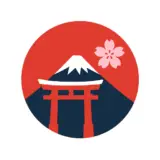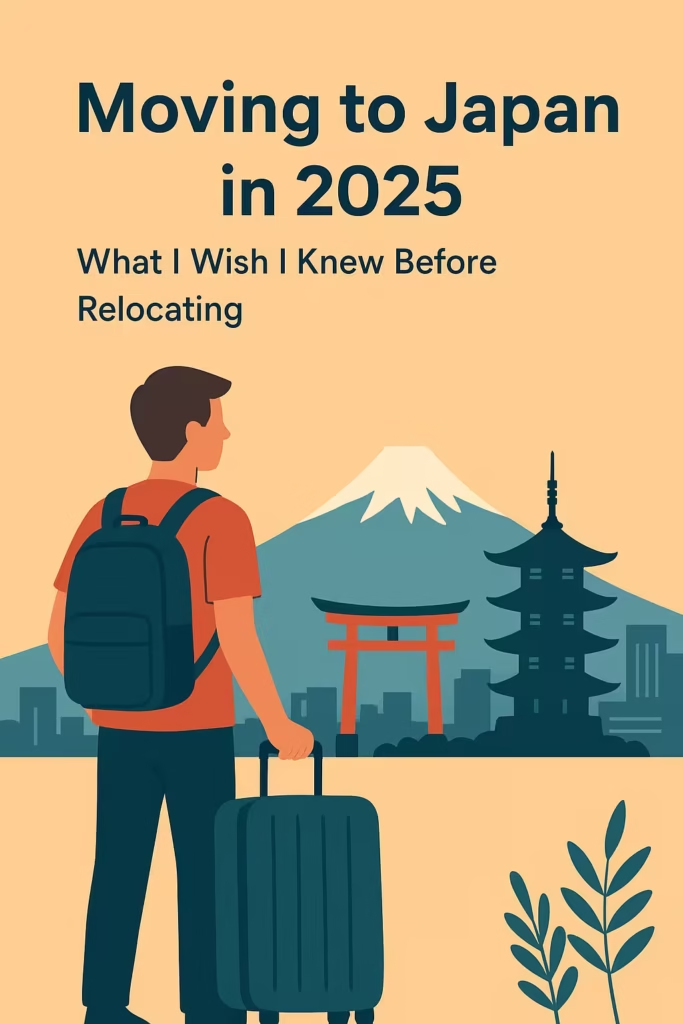Why I Decided to Move to Japan
Like many people, my story started with fascination — anime, Japanese cars, and the quiet beauty of Kyoto streets at night.
In 2020, I finally made it happen.
I packed my life into two suitcases and moved across the world.
Fast-forward to 2025, and I’ve learned a lot — sometimes the hard way.
If you’re dreaming of starting a new chapter in Japan, here’s what I wish someone had told me before I arrived.
🏠 1. Finding a Place to Live Is Harder Than You Think
Japan’s rental system can surprise even the most prepared newcomer.
It’s not just “deposit + rent” — there’s also key money, guarantor fees, and sometimes cleaning fees at move-in and move-out.
💡 Tip: Use foreigner-friendly services like Sakura House, LeoPalace, or GaijinPot Housing to avoid language barriers and hidden charges.
👉 Related: How to Rent an Apartment in Japan as a Foreigner (Complete 2025 Guide)
💰 2. Japan Is Not Cheap (But It’s Manageable)
Everyone imagines Tokyo as ultra-expensive — and yes, it can be.
But the truth is, your lifestyle determines your budget more than the city does.
| City | Monthly Cost (¥) | Equivalent (USD) | Notes |
|---|---|---|---|
| Tokyo | 140,000–180,000 | $950–1,250 | Expensive rent, great jobs |
| Osaka | 110,000–150,000 | $750–1,000 | Cheaper housing, big city life |
| Kyoto | 100,000–140,000 | $680–950 | Affordable, peaceful |
| Fukuoka | 90,000–120,000 | $600–850 | Budget-friendly & growing expat hub |
💡 Reality: Eating out is cheap, but fresh groceries can be surprisingly expensive.
🧾 3. Visa Paperwork Takes Time — Start Early
Japan’s immigration process isn’t hard, but it’s slow and very detail-oriented.
Even small errors on your application can delay approval.
If you’re applying for:
- Student visa: Confirm your school’s accreditation before paying any fees.
- Work visa: Make sure your company provides a written offer before you resign.
- Business / freelancer visa: Keep at least ¥5 million in savings or investment capital.
👉 Related: Japan Visa Types: Which One Is Right for You? (My Honest Guide + Real Experience)
🗣️ 4. Not Knowing Japanese Is OK… at First
When I moved here, I could barely say “sumimasen.”
At first, it was fine — people were polite and patient. But later, I realized I was missing out on everyday life.
Learning basic Japanese (JLPT N5–N4 level) helps a lot.
- You’ll understand paperwork and signs
- You’ll make local friends
- You’ll feel more independent
Even if you learn just one new phrase a day, Japan starts feeling like home faster than you expect.
👉 Related: Living in Japan Without Speaking Japanese — Is It Really Possible?
👥 5. Culture Shock Is Real — and It Comes in Waves
At first, everything feels magical — konbini food, trains on time, bowing cashiers.
Then, small frustrations start to appear:
The silence, indirect communication, rules you didn’t know existed.
The key is balance.
Don’t try to become 100% Japanese, but don’t isolate yourself either.
Join communities — coworking spaces, volunteer groups, language exchanges.
Japan rewards effort and respect more than perfection.
🏢 6. Career Opportunities Depend on Language and Industry
In Japan, your job options depend on two things: your Japanese level and your visa type.
English teaching, IT, and international trade offer the most chances for non-Japanese speakers.
If you’re in tech, design, or marketing, Tokyo and Osaka have many English-friendly startups hiring globally.
For creative freelancers, the new Digital Nomad Visa (2025) opens exciting possibilities.
👉 Related: Japan Digital Nomad Visa: Your 2025 Guide
🌸 7. Life in Japan Gets Easier (and Better) Over Time
At first, Japan can feel confusing — but one day, you’ll notice:
You bow automatically.
You line up quietly.
You say “otsukaresama” without thinking.
That’s when you realize — Japan hasn’t changed you overnight, but it’s shaped you gently, through patience and rhythm.
Living here teaches you to slow down, observe, and appreciate small details.
✈️ Final Thoughts
Moving to Japan isn’t just about changing countries — it’s about changing your pace of life.
It’s challenging, expensive, and sometimes lonely, but also full of beauty, order, and quiet joy.
If I could go back, I’d tell myself:
“Don’t rush. Learn the basics. Accept help. And always keep a konbini coffee in your hand.”
Japan rewards curiosity — so come prepared, stay open, and enjoy every little discovery.
Discover more from Ali in Japan
Subscribe to get the latest posts sent to your email.

